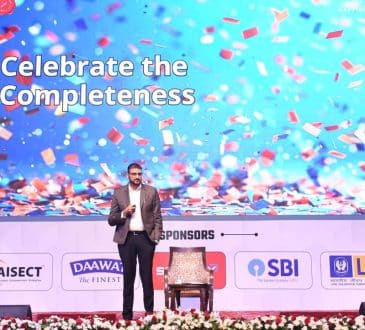8 ways leaders can get better at receiving feedback

As a leader, receiving feedback can be challenging, even when it’s constructive. It’s natural to feel defensive or uncomfortable when faced with what you perceive to be criticism. But, as a leader, your ability to not only accept but truly welcome and learn from feedback is vital for your personal growth, team dynamics, and organizational success.
Far too often, leaders expect their teams to embrace feedback, yet they struggle to receive it themselves. They don’t model the behavior they want to see in others. This reluctance can lead to missed opportunities to improve and hinder your effectiveness as a leader. You risk missing vital information that can inform your decision-making and help you better understand your team’s perspectives and emotions. Feedback is the gift of insight. To encourage an open feedback culture in your team, you must lead by example and be receptive to feedback.
Here are eight practical steps to help you become a better feedback receiver:
- Get curious, not furious: Seek first to understand
When someone offers feedback, shift your focus from formulating your response to getting curious about what they are saying and genuinely trying to understand their perspective. This requires courage and vulnerability. Often, we only half-listen, while the rest of our brain focuses on crafting a comeback. To truly receive feedback, take a deep breath and prioritize listening to comprehend, not just to reply. - Drop the defence and assume positive intent.
Most people give feedback with good intentions, so resist the urge to respond defensively. Reframe your perspective from viewing it as an attack to seeing it as information. Instead of assuming negative intent, which we’re prone to do thanks to our negative bias, assume that their reason for raising their concerns is positive and intended to help get a better outcome. This does not mean you have to agree with the feedback the other person gives you, but be open to receiving it. - Drill down to specifics.
Encourage those giving feedback to be specific about their concerns rather than make vague statements like “the whole thing is rubbish”. Ask questions to delve deeper. If someone thinks you’re leading a change poorly, ask them why. You need more information. What is it about your behavior that made them come to that conclusion? - Seek examples
Just like it’s important to give specific examples when delivering difficult feedback, it’s also important to ask for them when you’re the one receiving feedback. This not only helps you understand the issue more clearly but also helps you determine if their feedback is grounded in fact and reality, or if they have made assumptions. - Clarify and confirm
Don’t assume you completely understand the other person’s perspective. Summarise what you’ve heard and ask for confirmation to ensure alignment. For instance, you might say, “What I’m hearing is… Have I got that right?” - Put a pause between your reaction and your response
When confronted with challenging feedback, emotions can run high. Instead of reacting immediately, request a break or more time for reflection before coming back to them for a discussion. This should not be used as an avoidance tactic but rather a regulation tool. If you say you’ll get back to them, make sure you do. This will allow you to respond calmly and thoughtfully, rather than impulsively in the heat of the moment.If taking a physical break isn’t possible, take a drink of water, a deep breath, or say something like, “Let me think about that for a moment.” Even a few seconds to consider your response will help.
- Look for the learnings
Even if the feedback is hard to hear, there are often valuable lessons to be found within it. What can you do differently based on the feedback? What gift has the insight given you? Look for opportunities to grow, improve, and refine your leadership based on this new information. - Be grateful
Even if you disagree with the feedback you’ve received, acknowledge and appreciate the courage of the person who shared it with you. No, you don’t have to be grateful for what they said, but rather the fact that they said it to your face rather than behind your back. Knowing how someone perceives you, your actions, or a decision you’ve made can be valuable information to have.
Remember, receiving feedback is a skill that improves with practice. By modeling effective feedback reception, you set a powerful example for your team and foster a culture of open communication and continuous improvement. Feedback should not be seen as a dirty word; it’s your path to personal and leadership growth.
Written by Leah Mether.
Have you read?
Most Influential Female CEOs In The Telecom Industry, 2023.
The 50 Richest People in the Philippines, 2023 List.
These Are the most overpaid CEOs among S&P 500 companies, 2023.
Biggest banks in the world, as measured by total assets, 2023.
The World’s Richest Self-Made Women, 2023.
Bring the best of the CEOWORLD magazine's global journalism to audiences in the United States and around the world. - Add CEOWORLD magazine to your Google News feed.
Follow CEOWORLD magazine headlines on: Google News, LinkedIn, Twitter, and Facebook.
Copyright 2025 The CEOWORLD magazine. All rights reserved. This material (and any extract from it) must not be copied, redistributed or placed on any website, without CEOWORLD magazine' prior written consent. For media queries, please contact: info@ceoworld.biz








